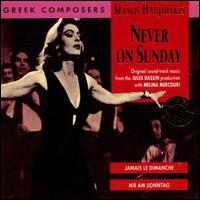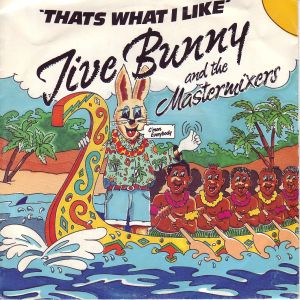Related Research Articles

Chubby Checker is an American singer and dancer. He is widely known for popularizing many dance styles, including the Twist dance style, with his 1960 hit cover of Hank Ballard & The Midnighters' R&B song "The Twist", and the pony dance style with the 1961 cover of the song "Pony Time". His biggest UK hit, "Let's Twist Again", was released one year later ; that year, he also popularized the song "Limbo Rock", originally a previous-year instrumental hit by the Champs to which he added lyrics, and its trademark Limbo dance, as well as other dance styles such as The Fly. In September 2008, "The Twist" topped Billboard's list of the most popular singles to have appeared in the Hot 100 since its debut in 1960, an honor it maintained for an August 2013 update of the list.

The twist is a dance that was inspired by rock and roll music. From 1959 to the early sixties it became a worldwide dance craze, enjoying immense popularity while drawing controversies from critics who felt it was too provocative. It inspired dances such as the Jerk, the Pony, the Watusi, the Mashed Potato, the Monkey, and the Funky Chicken, but none were as popular.
Kal Mann was an American lyricist. He is best known for penning the words to Elvis Presley's "Teddy Bear", plus "Butterfly", a hit for both Charlie Gracie and Andy Williams, and "Let's Twist Again", sung by Chubby Checker, which won the 1962 Grammy Award for Best Rock & Roll Recording.
"Bristol Stomp" is a song written in 1961 by Kal Mann and Dave Appell, two executives with the Cameo-Parkway record label, for The Dovells, a doo-wop singing group from Philadelphia, Pennsylvania, who recorded it for Cameo-Parkway late that year. Appell also produced and arranged the track and his Cameo-Parkway's house band served as the studio musicians.
Dee Dee Sharp is an American R&B singer, who began her career recording as a backing vocalist in 1961.
"Peppermint Twist" is a song written by Joey Dee and Henry Glover, recorded and released by Joey Dee and the Starliters in 1961. Capitalizing on the Twist dance craze and the nightclub in which Dee performed, the song hit No.1 on the U.S. Billboard Hot 100 in early 1962. The original recording of the song was considered too long for release on a 45 rpm single, so it was split into two parts. It was this first part, "Peppermint Twist ", with a length of 2:03, which became the No.1 hit; the mostly instrumental second half of the recording is rarely heard today.
"Tzena, Tzena, Tzena", sometimes "Tzena, Tzena", is a song, written in 1941 in Hebrew. Its music is by Issachar Miron, a Polish emigrant in what was then the British Mandate of Palestine, and the lyrics are by Yechiel Chagiz.

"Jingle Bell Rock" is an American Christmas song first released by Bobby Helms in 1957. It has received frequent airplay in the United States during every Christmas season since then, and is generally considered Helms' signature song. "Jingle Bell Rock" was composed by Joseph Carleton Beal and James Ross Boothe, although both Helms and session guitarist on the song Hank Garland disputed this. Beal was a Massachusetts-born public relations professional and longtime resident of South Ocean Avenue in Atlantic City, New Jersey, and Boothe was an American writer in the advertising business.
"The Twist" is an American pop song written and originally released in 1958 by Hank Ballard and the Midnighters as a B-side to "Teardrops on Your Letter". It was inspired by the twist dance craze. Ballard's version was a moderate hit, peaking at number 28 on the Billboard Hot 100 in 1960. On the US Billboard Hot R&B Sides chart, the original version of "The Twist" first peaked at number sixteen in 1959 and at number six in 1960.
Record World magazine was one of the three main music industry trade magazines in the United States, along with Billboard and Cashbox. It was founded in 1946 under the name Music Vendor, but in 1964 it was changed to Record World, under the ownership of Sid Parnes and Bob Austin. It ceased publication on April 10, 1982. Many music industry personalities, writers, and critics began their careers there in the early 1970s to 1980s.

"Never on Sunday", also known by its original Greek title "Ta Pediá tou Pireá", is a popular song written by Manos Hatzidakis and first sung by Melina Mercouri in the film of the same name, directed by Jules Dassin and starring Mercouri. The song won the Academy Award for Best Original Song in 1960, a first for a foreign-language picture. The film score was first released on 1 October 1960 by United Artists Records. The song has since been recorded by numerous artists, and has gained various degrees of success throughout the world. The opening of the song bears some resemblance to that of Poinciana.

The Midnighters were an American vocal group from Detroit, Michigan. They were an influential group in the 1950s and early 1960s, with many R&B hit records. They were also notable for launching the career of lead singer Hank Ballard and the worldwide dance craze the Twist. Between 1953 and 1962 the Midnighters had several hits on the U.S. pop and R&B charts. Their hits included the million-selling Billboard Top 10 pop hits "Finger Poppin' Time", and "Let's Go, Let's Go, Let's Go". The Midnighters also had 13 top 10 R&B hits, including three that reached number 1. Their top 10 R&B hits included "Work with Me, Annie", "It's Love Baby ", "Annie Had a Baby", "The Hoochi Coochi Coo", "Teardrops on Your Letter", "Get It", "The Float" and "Nothing but Good". They received the Rhythm and Blues Foundation's prestigious Pioneer Award in 1992 and were inducted into the Vocal Group Hall of Fame in 1999. The Midnighters are also noted for achieving a music industry milestone in 1960, by becoming the first group in history to place 3 singles in the Billboard Hot 100 at the same time. The group's lead singer, Hank Ballard, was inducted into the Rock and Roll Hall of Fame in 1990. The Midnighters as a group were inducted into the Rock and Roll Hall of Fame on April 14, 2012.

"That's What I Like" is a song by British novelty pop music act Jive Bunny and the Mastermixers, released on 2 October 1989 as the second single from their debut album, The Album (1989). It followed "Swing the Mood" to number one in the United Kingdom, Ireland and Spain and went top ten in several countries. In the United States, it failed to build on the success of the group's first hit, peaking at number 69 on the Billboard Hot 100.

"Let's Twist Again" is a song written by Kal Mann and Dave Appell, and released as a single by Chubby Checker. One of the biggest hit singles of 1961, it reached No.8 on the U.S. Billboard pop chart in August of that year and subsequently reached No.2 in the UK in the spring of 1962. The song refers to the Twist dance craze and Checker's 1960 single "The Twist", a two-time U.S. No.1 single.

"Limbo Rock" is a popular song about limbo dancing written by Kal Mann and Billy Strange. An instrumental version was first recorded by The Champs in 1961. The first vocal version was recorded in 1962 by Chubby Checker : it peaked at number two on the Billboard Hot 100 for two weeks and at number one on the Cash Box charts. The Chubby Checker recording also made it to number three on the R&B charts.
"Man Smart (Woman Smarter)" is a calypso song variously credited as being composed by Norman Span (King Radio), D. L. Miller, F. Kuhn, and Charles Harris. Span's authorship seems most likely since, as a popular calypso musician and songwriter, he first recorded the song in 1936, and none of the other ascribed composers are associated with calypso. Miller's music industry career began around 1950.
"Slow Twistin'" is a song written by Jon Sheldon, and recorded by American rock and roll musicians Chubby Checker and Dee Dee Sharp. Released as a single in 1962, it peaked at number 3 on both the Billboard Hot 100 and the R&B singles chart.
"The Fly" is a song written by John Madara and David White and performed by Chubby Checker. The song was produced by Kal Mann.
"Dear Lady Twist" is a song written and produced by Frank Guida, and performed by Gary U.S. Bonds. It reached #5 on the U.S. R&B chart and #9 on the U.S. pop chart in 1962. It was featured on his 1962 album Twist Up Calypso.
References
- ↑ Breihan, Tom (November 15, 2022). "Chubby Checker - "The Twist". The Number Ones: Twenty Chart-Topping Hits That Reveal the History of Pop Music. New York: Hachette Book Group. p. 16.
- ↑ "ASCAP Repertory entry for this song". ASCAP. Retrieved May 14, 2021.
- ↑ "Chubby Checker". Billboard. Retrieved 2022-01-16.
- ↑ Dawson, Jim (1995). The twist : the story of the song that changed the world. Internet Archive. Boston : Faber & Faber. pp. 30-31. ISBN 978-0-571-19852-8.